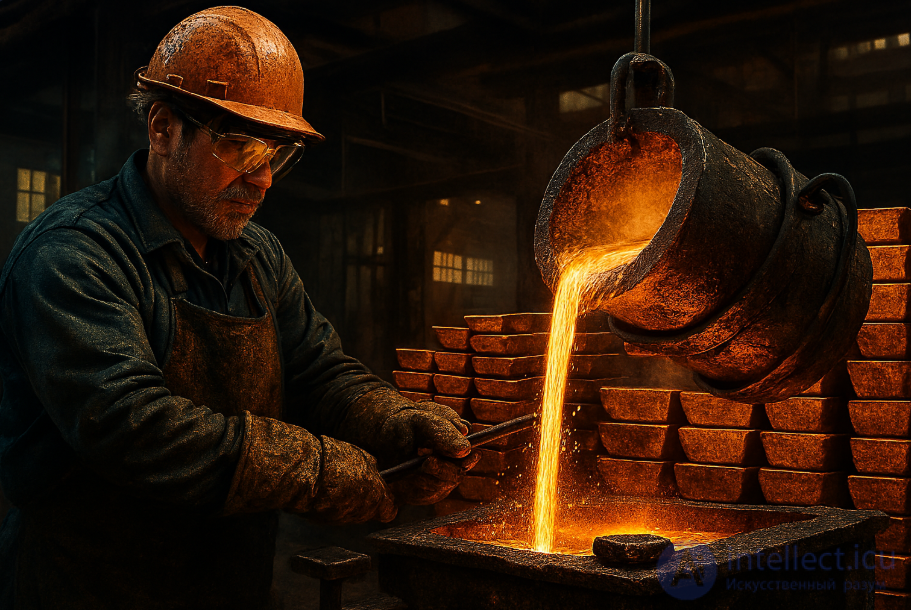Lecture
1. General characteristics of the profession
From non-ferrous metals and their alloys, it casts parts and products in various ways: into the ground, by the method of exact and cortical casting. Prepares the casting material for a given recipe. Adjusts the mechanisms of the machine for a given casting mode. Makes test samples, controls the mode and the casting process using measuring instruments. Determines the quality of the casting. Troubleshoot the injection molding machine.

2. Requirements for the individual characteristics of a specialist
For the activities required: physical endurance; skillful hands; spatial imagination; precise eye; ability to read blueprints; precise coordination of movements; spatial representation; caution.
3. Medical contraindications
The work is not recommended for people with: diseases of the musculoskeletal system; severe diseases of the organs of vision; hearing severe forms of hypertension and diseases of the central nervous system; of cardio-vascular system; skin diseases; allergic diseases; deformation of the fingers; chronic infectious diseases.
4. Requirements for training
Should know: the device and the principle of operation of injection molding machines of various types; technological casting modes; techniques and rules for assembly and disassembly of complex molds; methods and rules for smelting metals; the main types of casting, the influence of the composition of the mixture on the properties and quality of the metal; technical requirements for products.
5. Related professions
Plastics caster, ferroalloy smelter.
Comments
To leave a comment
Professions and specialties
Terms: Professions and specialties